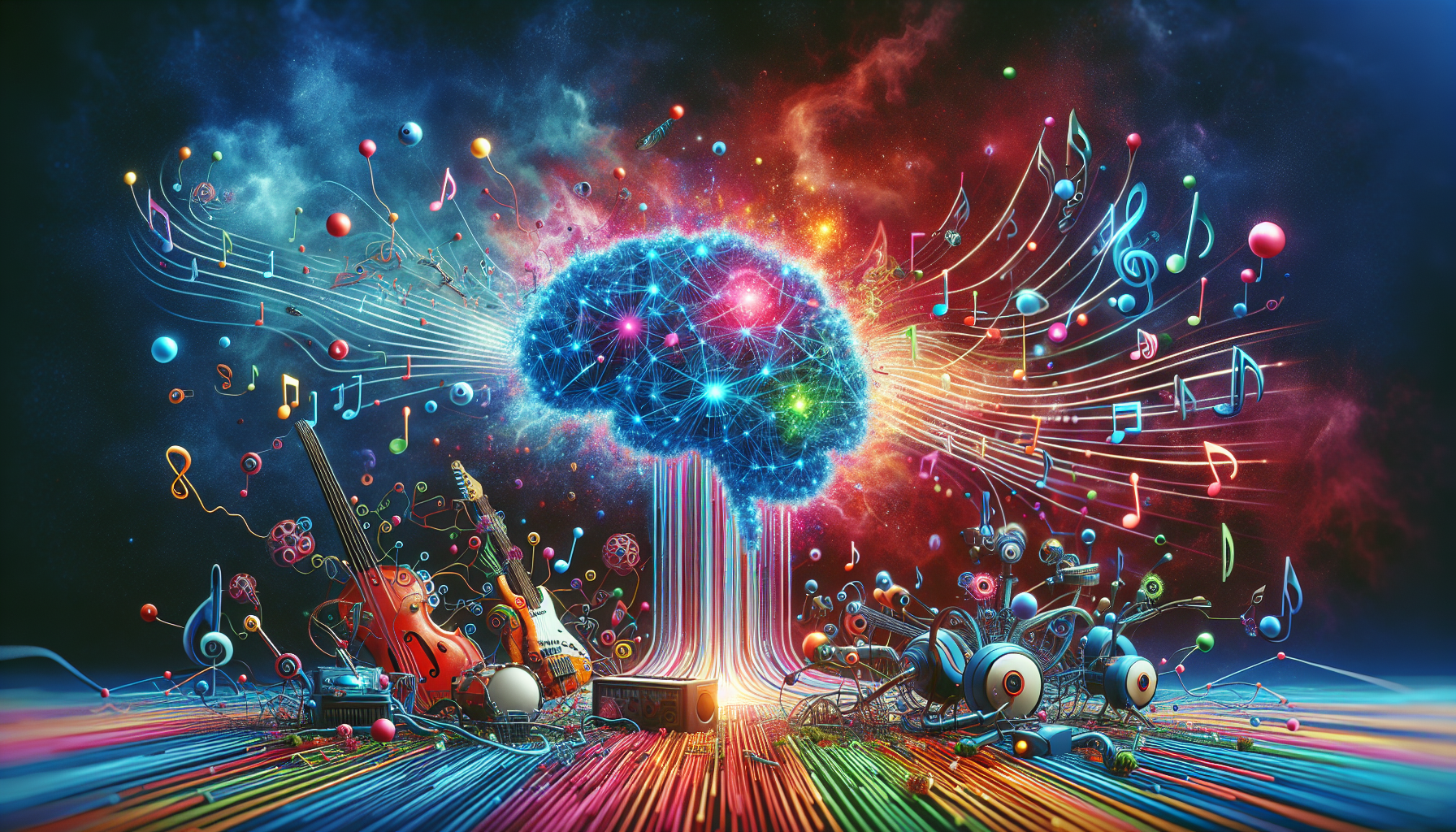
The Delight and Despair of AI-Generated Sounds
The music industry has found itself in a harmonic conundrum as AI-generated music raises some controversial yet intriguing notes. The advent of generative AI is not merely producing melodies out of thin digital air but is creating full-length musical compositions without so much as a wink of acknowledgment to original artists. Legal skirmishes have ensued, reminiscent of a rock and roll drum battle, with heavyweight record labels like Universal Music Group and Warner Music Group taking aim at these techno-maestros for potential copyright infringements. Yet as the chords of the courtroom drama unfold, one can’t help but marvel at the novelty of this techno-symphonic revolution.
While algorithms are churning out tunes like a jukebox on crack, there’s a resounding chorus from the musicians’ camp emphasizing the irreplaceable human soul in music. Sound maestros like Stephen Day argue, in perfect pitch, that AI lacks the proverbial heartstrings that turn mere notes into moving music. As technology prances forward in its electrifying dance, the essence of human creativity is seen as the melody that truly enchants the audience.
AI’s Role on Stage and Studio
AI’s introduction into music production has been nothing short of a remix marvel. Tools such as Landr and Udio now allow novices and indie artists to produce studio-quality recordings from the comfort of their bedrooms. It’s as if every aspiring musician has found their very own magic wand, or perhaps more appropriately, a virtual sound engineer.
Meanwhile, live performances have become a tech-infused extravaganza with AI analyzing crowd vibes in real-time, adjusting lighting and visuals faster than a roadie on Red Bull. The concerto of human and AI interaction on stage provides a spectacle that even Beethoven might beam at, albeit with a raised eyebrow at the digital choir.
From Smart Playlists to Spot-On Promotion
Artificial intelligence shines like a DJ spinning records at a summer bash when it comes to personalized listening experiences. Streaming overlords Spotify and Apple Music employ sophisticated algorithms to tailor playlists according to user whims and past engagements. Your snazzy Sunday brunch playlist? Thank AI, which probably knows your mood swings better than your therapist.
On the promotional front, AI proves its worth by turning data into devoted fans. By dissecting listener data, artists can now bombard (lovingly, of course) their target audience with pinpoint precision, ensuring their music swirls around like a catchy hook stuck in your head. And yet, ethical dilemmas rise as voices of over 200 musicians urge restraint, demanding AI companies to safeguard their creative legacies against unauthorized digital duplications.
Blockchain: The New Music Maestro?
The crescendo of this techno-opera is enhanced with the introduction of blockchain technology, suggested as a potential savior for musical intellectual property issues. This digital ledger stands as a vigilant guardian, whispering sweet promises of transparency and equitability to artists wary of exploitation by AI conductors. Perhaps blockchain is the encore that the industry seeks—an immutable ledger that ensures artists get their fair share of the limelight.
Despite all these techno-fueled feats, whispers of a future filled solely with binary sounds are graciously dismissed by industry pundits. AI may tinker with the keys of admin tasks, but the bass line of human empathy and connection in music remains orchestrally unchallenged. The future of music surely remains a duet, harmoniously blending digital innovation with the touch of human spirit.






